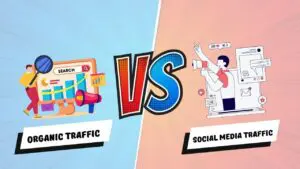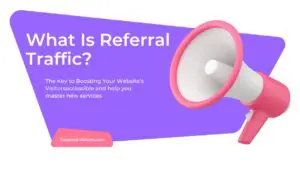
Comprehensive Guide: Top 15 Strategies for Targeted Website Traffic
In the vast digital landscape, attracting targeted traffic to your website is not just desirable—it’s essential. As online competition intensifies, mastering effective strategies becomes the linchpin of success. This comprehensive guide unveils the top 15 proven ways to not only boost your website traffic but to attract the right audience—those genuinely interested in what you offer.
Contents
- 1 1. Search Engine Optimization (SEO):
- 2 2. Content Marketing Mastery:
- 3 3. Long-Tail Keyword Domination:
- 4 4. Social Media Synergy:
- 5 5. Building Backlinks Strategically:
- 6 6. Mobile Optimization Excellence:
- 7 7. Need for Speed:
- 8 8. Guest Blogging for Authority:
- 9 9. Strategic Email Marketing:
- 10 10. Schema Markup Implementation:
- 11 11. Active Online Community Participation:
- 12 12. Voice Search Optimization:
- 13 13. Visual Appeal with Infographics:
- 14 14. Contests and Giveaways for Engagement:
- 15 15. Data-Driven Decisions:
- 16 Frequently Asked Questions (FAQs):
1. Search Engine Optimization (SEO):
Optimizing your website for search engines remains the bedrock of online visibility. Strategic keyword integration, impeccable meta tags, and compelling content are keystones for SEO success.
2. Content Marketing Mastery:
Crafting content that is not just informative but resonates with your audience’s needs is paramount. Shareable, valuable content is the lifeblood of organic traffic.
3. Long-Tail Keyword Domination:
Dig deeper into specific, longer search phrases to capture highly qualified leads. Long-tail keywords improve search engine rankings and cater to more nuanced user queries.
4. Social Media Synergy:
Leverage the power of social platforms to share content, engage with your audience, and drive traffic back to your website. A strategic social media presence is indispensable.
5. Building Backlinks Strategically:
Develop a robust backlink profile by acquiring links from reputable websites in your industry. Quality over quantity is the golden rule.
6. Mobile Optimization Excellence:
Ensure your website is not just mobile-friendly but optimized for an outstanding user experience. With the rise of mobile users, this step is non-negotiable.
7. Need for Speed:
Optimize your site for rapid loading times. A slow website can lead to high bounce rates, affecting both user experience and search engine rankings.
8. Guest Blogging for Authority:
Contribute guest posts to authoritative websites in your niche. This not only builds backlinks but establishes you as an expert in your field.
9. Strategic Email Marketing:
Targeted email campaigns are a direct line to your audience. Promote your content, products, or services effectively through well-crafted email campaigns.
10. Schema Markup Implementation:
Enhance your search engine presence by implementing schema markup. This provides search engines with structured data, improving the visibility of your content.
11. Active Online Community Participation:
Engage in forums and communities relevant to your niche. Building credibility within these communities can significantly drive targeted traffic.
12. Voice Search Optimization:
Adapt your content for voice search. As more users embrace voice-activated devices, optimizing for voice search becomes imperative.
13. Visual Appeal with Infographics:
Craft visually appealing infographics to present information in a shareable format. Visual content often garners more engagement on social media.
14. Contests and Giveaways for Engagement:
Organize online contests and giveaways to boost participation. These not only attract traffic but also encourage social sharing.
15. Data-Driven Decisions:
Regularly analyze website data to understand user behavior, identify trends, and make informed improvements. Data is your guide to continuous growth.
Frequently Asked Questions (FAQs):
Q1: How soon can I expect results from these strategies?
A1: Results vary, but commitment and consistency are key. Initial improvements may be seen in a few months, with continued growth over time.
Q2: Can paid advertising complement these strategies?
A2: Yes, integrating paid advertising can provide a balanced approach, enhancing both organic and paid traffic efforts.
Q3: Why is mobile optimization crucial for website traffic?
A3: With a significant portion of users accessing the internet via mobile devices, optimization ensures a seamless experience, positively impacting traffic.
Q4: How frequently should I update my website’s content?
A4: Regular updates, at least monthly, help keep your content fresh and relevant, signaling to search engines that your site is active and valuable.
Q5: How important are backlinks for SEO?
A5: Backlinks play a crucial role, acting as “votes of confidence” from other websites and signaling to search engines that your content is trustworthy and valuable.
Q6: What role does social media play in driving traffic?
A6: Social media platforms are powerful tools for content promotion. They increase visibility, encourage sharing, and direct traffic back to your website.
Q7: How can I identify the right long-tail keywords for my content?
A7: Use keyword research tools, analyze competitor keywords, and focus on phrases that align with your content and have moderate search volume.
Q8: Should I focus on all social media platforms, or are some more effective than others?
A8: Tailor your approach based on your audience. Identify which platforms your target audience frequents and focus your efforts there.
Q9: How can I ensure my website is voice-search-friendly?
A9: Use natural language in your content, answer common questions concisely, and optimize for local search, as voice searches often have local intent.
Q10: Can contests and giveaways attract quality traffic?
A10: Yes, when executed well, contests and giveaways not only attract traffic but also engage your audience and encourage social sharing.
Q11: Is it necessary to participate in online communities for traffic growth?
A11: Yes, participating in relevant communities builds your online presence, establishes authority, and can drive targeted traffic to your website.
Q12: How do I analyze website data for insights? A12: Use analytics tools like Google Analytics to track user behavior, popular content, and conversion pa
ths, allowing you to make data-driven improvements.
Q13: Why is schema markup important for SEO?
A13: Schema markup provides additional context to search engines, helping them understand the content on your website and improving rich snippets in search results.
Q14: Are infographics still effective for content marketing?
A14: Yes, infographics remain effective in presenting complex information in a visually appealing and shareable format.
Q15: Can targeted email campaigns effectively drive traffic?
A15: Absolutely. Targeted email campaigns allow direct communication with your audience, promoting content, products, and special offers effectively.






